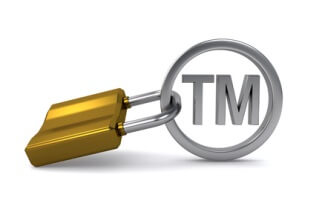 What are my Trademark Rights?
What are my Trademark Rights?
Should I sue for Trademark Infringement?
Your trademark or service mark is your brand name. It includes words, symbols and/or artistic elements used to distinguish your goods and services from those of your competitors. Trademarks are brands associated with goods while service marks are brands which pertain to service offerings. Your trademarks/service marks are valuable property rights representing the goodwill that you have built-up in your business’s reputation and products. Naturally you are concerned when you notice a competitor who appears to be attracting customers by using a name or logo very similar to yours. What if you lose business to your competitor because your customers are confused? What if this confusion ends up tarnishing your reputation because your competitor’s goods and services are inferior to yours? What are your trademark rights and how do you enforce them?
First, you need to understand what type of trademark and/or service mark rights you own. There are two categories of rights – one arises by use and the other by registration with the United States Patent and Trademark Office. The first category is referred to as a “common law” trademark or service mark. You obtain common law rights as soon as you begin to use your mark in commerce. The geographic scope of your common law rights is limited to the area in which you use the mark. So if you own a website and sell products called “Widgets” to customers all over the United States, your “Widget” trademark likely extends throughout the U.S. But if you are Wild Hair Salon in Worcester, Massachusetts, your clients are all located in Worcester County, and you do not advertise or market your services outside of Worcester – your “Wild” service mark rights are likely limited to Worcester County, Massachusetts.
The second type of trademark or service mark is obtained through federal registration with the United States Patent and Trademark Office (US PTO). These are trademark or service mark rights that you may obtain in addition to your common law rights. To obtain a federal registration, you must apply with the US PTO and go through their examination process. If the US PTO allows you to register your mark, then the scope of your geographic rights extends to the entire United States.
So what do you do when you suspect that someone is infringing upon your trademark rights? Well the first thing you ask is – is the infringer a competitor of yours? If your business is Wild Hair Salon, Wild Lawn Services probably isn’t infringing upon your “Wild” service mark. While both use the term “Wild” in their name, most customers wouldn’t confuse such different businesses. If there is a Wild Hair Salon in Chicago, and you have used your mark only in Worcester, then there isn’t infringement because you haven’t obtained trademark rights in Chicago. However, if there is a new spa opening up down the street from you called Wild Spa and Salon – this is a closer call. While both marks use the term “Wild” – the services are somewhat different. You would want to consider whether the spa offers hair styling services and assess the likelihood of customer confusion. What if the spa’s name was spelled differently – Wyld? Could that be confusing to customers? How is it pronounced? Do customers think the two businesses are affiliated or associated in some way? These inquiries are all part of a trademark infringement analysis. A trademark attorney will explain to you the various factors used in assessing trademark infringement and go over the strengths and weaknesses of your particular situation.
Once your attorney and you feel confident that your competitor is indeed infringing upon your trademark rights, what are your next steps? Do you call them on the phone – business owner to business owner – and explain the situation to determine whether you can reach an amicable solution? Do you have your attorney send a “cease and desist” letter explaining your trademark rights and asking/demanding the infringer to stop using the infringing mark? Do you file a lawsuit against the infringer and demand damages? What damages are you entitled to? Your strategy for enforcing your trademark rights is dependent upon how your business is being harmed: what damages do you think you have sustained in terms of lost business and damage to your reputation? How much are you willing to spend in court costs and attorney’s fees to enforce your rights? You should think carefully about your desired outcome, or best-case scenario, and discuss with your attorney the most cost effective way of achieving it. You should also consider fallback positions and think through what you can live with in the long term. Discussing all possible scenarios upfront and understanding the full litigation process before filing your lawsuit will help you choose the best way to enforce your trademark or service mark rights.
